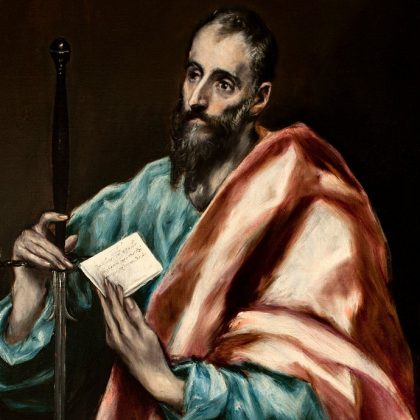The Fantastic of the Everyday: Re-Forming Definitions of Cinematic Parables with Paul Ricoeur
Until 6th February 2021 enjoy free access to Joel Mayward’s full paper on The Fantastic of the Everyday: Re-Forming Definitions of Cinematic Parables with Paul Ricoeur, published in Horizons, Volume 47 Issue 2
Ricoeur states that parables potentially contain several theologies, so revisiting these films may generate fresh theological insights and meanings. Ricoeur elsewhere declares that the parables “allow no translation in conceptual language … There is more to think through the richness of the images than in the coherence of a simple concept.[1]” As narrative-metaphors, parables cannot be dissected and reduced via scientific rationalization or systematic propositions.
Indeed, parables “say more than any rational theology. At the very moment that they call for theological clarification, they start shattering the theological simplifications which we attempt to put in their place.[2]” In this way, the above theological interpretations of A Separation, The Fits, and The Other Side of Hope are not exhaustive, nor does my theological film criticism adequately summarize or supersede the cinematic experience—even as I am striving to translate the experience of moving images into a publishable word-based form within an academic journal, this can never replace experiencing the actual films for oneself (which I would encourage readers to do).
To be clear, by drawing connections among the three chosen cinematic parables and various theologians and philosophers, I am not suggesting that these films’ theological merits are limited to such direct connections with theological writings, as if the films were merely illustrating theologians’ ideas. Instead, I am suggesting that these films in themselves can operate as constructive theologies that affirm, challenge, and reimagine traditional systematic word-based approaches to theology. Just as a substantial number of philosophers—such as Stanley Cavell, Stephen Mulhall, and Robert Sinnerbrink—have successfully argued for “film as philosophy,[3]” I am arguing for film as theology, a view similar to (yet slightly distinct from) the “cinematic theology” put forward by Gerard Loughlin [4].
My approach appreciates the “sacramentality” of cinema, which is more akin to the theological aesthetics of David Brown and the film theory of André Bazin. Brown defines the sacramental as “the symbolic mediation of the divine in and through the material.” For Brown, this mediation is not strictly instrumental or illustrative, but rather “the material symbol says something about God in its own right.[5]” Similarly, Bazin viewed cinematic techniques—particularly editing, cinematography, and mise-en-scène—as being linked to the theological concept of revelation: through its unique formal attributes, cinema allows us to become more aware of the presence of the divine in all things. In this sacramental sense, cinematic parables are truly doing (not merely depicting) theology through the moving image, and thus may offer fresh insights for the wider theological discourse.
[1] Ricoeur, “Listening to the Parables of Jesus,” 242.
[2] Ibid., 243.
[3] See Stanley Cavell, The World Viewed: Reflections on the Ontology of Film,enlarged ed. (London: Harvard University Press, 1979); Stephen Mulhall, On Film, 3rd ed. (London: Routledge, 2016); and Robert Sinnerbrink, New Philosophies of Film: Thinking Images (London: Continuum, 2011). For more examples of film as philosophy (film-philosophy), see Daniel Frampton, Filmosophy (London: Wallflower, 2006); Thomas E. Wartenberg, Thinking on Screen: Film as Philosophy (London: Routledge, 2007); Daniel Yacavone, Film Worlds: A Philosophical Aesthetics of Cinema (New York: Columbia University Press, 2014); and Rupert Read and Jerry Goodenough, eds., Film as Philosophy: Essays on Cinema after Wittgenstein and Cavell (Basingstok, England: Palgrave Macmillan, 2005).
[4] See Gerard Loughlin, Alien Sex: The Body and Desire in Cinema and Theology (Oxford: Blackwell, 2004).
[5] David Brown, God and Enchantment of Place: Reclaiming Human Experience (Oxford: Oxford University Press, 2004), 30. I am indebted to Brown’s work on sacramentality for my theocinematics approach: see also David Brown, God and Grace of Body: Sacrament in Ordinary (Oxford: Oxford University Press, 2007) and God and Mystery in Words: Experience through Metaphor and Drama (Oxford: Oxford University Press, 2008).





